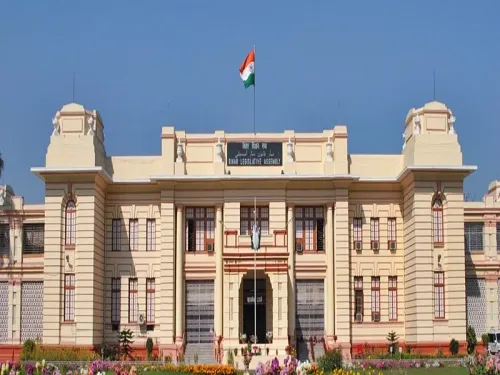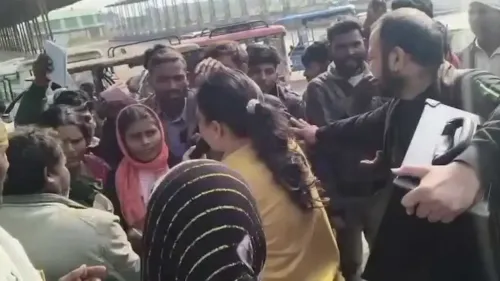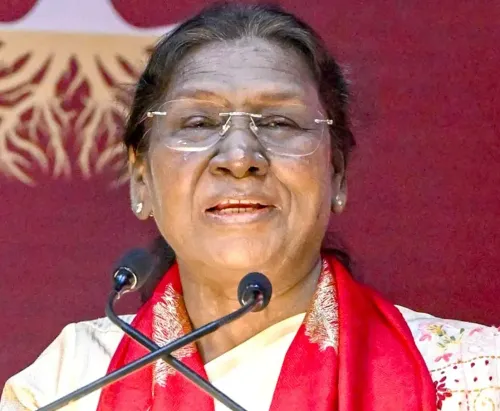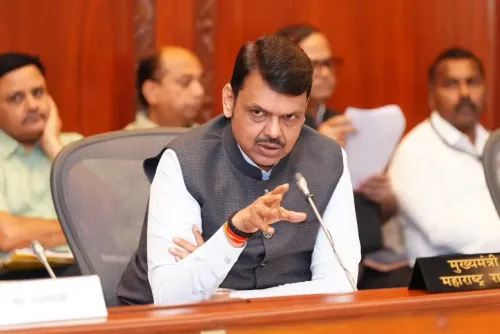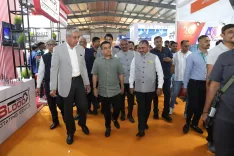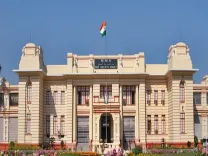Why Did the Rajya Sabha Erupt Over Denied Debate Requests?
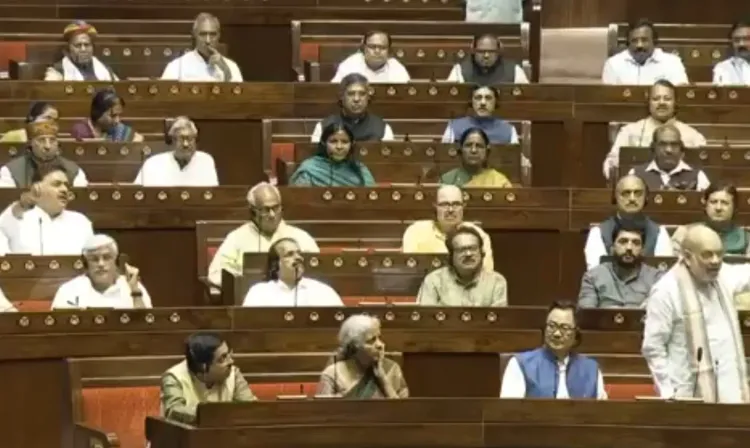
Synopsis
Key Takeaways
- Rajya Sabha adjourned amid uproar over denied debate requests.
- Deputy Chairman cited procedural issues for rejecting notices.
- Opposition raised concerns regarding critical national issues.
- Legislative agenda includes significant bills for upcoming sessions.
- Tensions between government and Opposition persist.
New Delhi, Aug 1 (NationPress) The Rajya Sabha experienced a tumultuous beginning to its Friday session, leading to an adjournment until noon after a contentious clash between the Chair and members of the Opposition. Deputy Chairman Harivansh Narayan Singh disclosed that 30 notices had been submitted under Rule 267, requesting the suspension of business to deliberate on urgent public matters. However, he determined that none of the submissions met the procedural standards, thus rendering them inadmissible.
This decision incited immediate uproar from the Opposition benches, who accused the Chair of suppressing discussion on vital national concerns.
Among the issues raised were calls for a conversation on the Special Investigation Report in Bihar, articulated by a broad coalition of members, including Md Nadimul Haque (Trinamool Congress), Manoj Kumar Jha (RJD), Tiruchi Siva (DMK MP), Ranjeet Ranjan (Congress), Neeraj Dangi (Congress), Rajani Ashokrao Patil (Congress), and others.
At the same time, Opposition members from Odisha raised alarm over the troubling increase in crimes against women and children, while representatives from West Bengal highlighted the discrimination faced by Bengali migrant workers in various states.
Jebi Mather (Congress) and CPI(MP)'s A.A. Rahim submitted notices for a debate regarding the arrest of two nuns in Durg, Chhattisgarh, while Sanjay Singh (AAP) and Ramjilal Suman (SP) advocated for discussions about the economic repercussions of tariffs and penalties imposed by former US President Donald Trump on Indian exports. CPI(M)'s V. Sivadasan called for a discussion on the crisis of mass layoffs in the Indian IT sector.
Despite multiple appeals, including a pointed intervention from Manoj Kumar Jha, the Deputy Chairman remained resolute, asserting that the matter concerning the SIR was sub-judice and under the purview of the Election Commission of India, a constitutional body.
He reiterated that the House’s regulations were explicit and that Zero Hour and Question Hour could not be transformed into a forum for suspended business.
This declaration only heightened the protests, with members continuing to chant slogans like “Vote chori band karo” and “Kesaria pe halla bol,” which reverberated throughout the chamber, as members accused the Chair of denying them the opportunity to voice grievances and issues of national significance.
Ashok Kumar Mittal of the Aam Aadmi Party attempted to present his notice for Zero Hour, but his words were drowned out by the chaos. The Speaker endeavored to calm the Opposition members by stating, “Pura desh dekh raha hai… aap jan samasya nahi uthane de rahe hain, aap rules follow nahi karna chahte (the whole country is watching… you are not allowing fellow members to raise public issues as you do not wish to abide by the rules).”
As the uproar rendered proceedings inaudible, the House was compelled to adjourn.
Earlier in the day, several ministers presented official documents and reports. Ministers Jitendra Prasad, Ram Nath Thakur, Dr. L. Murugan, Kamlesh Paswan, Navneet Singh, Bhupathi Raju Srinivas Sharma, and Pabitra Margherita provided updates on rural development and railways, including the second and sixth reports on rural development and the third report of the Standing Committee on Railways from the 18th Lok Sabha.
A statement was also made regarding government business for the forthcoming week.
The legislative agenda outlined by the government included proposals for extending Presidential Rule for an additional six months, alongside a series of Bills such as the Carriage of Goods by Sea Bill, the Coastal Shipping Bill 2025, the Merchant Shipping Bill, and the Indian Sports Bill.
Other items included the National Sports Bill, the National Anti-Doping Amendment Bill 2025, the Manipur Goods and Services Tax Bill, and the Appropriation Bill for Manipur for the financial year 2025–26.
A Bill proposing the realignment of Scheduled Tribe representation in Goa was also set to be introduced in next week’s business.
As the House readied to reconvene post-noon, the atmosphere remained charged. With the Opposition resolute in pressing its case and the Chair steadfast on procedural grounds, the day’s proceedings seemed destined for further impasse.


